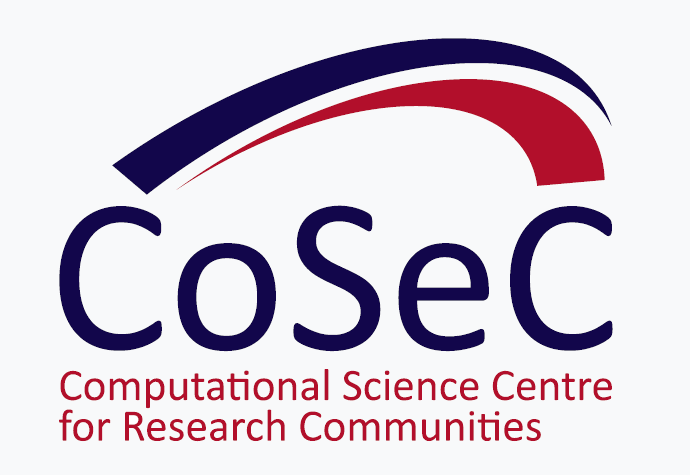To Friday 13 January 2023 - 14:00
CodeEntropy represents a new, powerful method to calculate the entropy of biomolecular systems, including the associated water, ions, solutes and lipids. Entropy quantifies the flexibility of a system and together with energy determines system stability but is non-trivial to evaluate. Taking as input the force and coordinate trajectories from a standard molecular dynamics, CodeEntropy derives effective probability distributions using the recently developed theory called Multiscale Cell Correlation [1-3], and generates the total entropy as an insightful sum over all molecules and all degrees of freedom at a hierarchy of length scales. With its distinctively scalable, intuitive and general formulation, it can be used to study a range of questions such as biomolecular stability [3,4], partition coefficients [5] and molecular binding [6]. Now written as easy-to-use code with support from CCPBioSim, the goal of the workshop is to start building a community of CodeEntropy users and contributors.
We are looking for approximately 20 participants for an expert workshop to evaluate and improve CodeEntropy. We want people with an interest in entropy and enough experience to recognise silly results (specific experience with CodeEntropy or the Multiscale Cell Correlation method is not required). The purpose of the event is to test CodeEntropy to its limits and improve the code and documentation. The agenda will include bug hunting and new feature requests. We will provide some MD trajectory data for benchmark systems and people are encouraged to bring their own systems of interest.
The hackathon will be in Leeds 12-13 January 2023 (9am – 5pm on the Thursday and 9am – 2pm on the Friday). There is the option to attend via Zoom, but attendance in person is encouraged. Industry participants are very welcome.
Technical requirements: CodeEntropy will work on Linux. It has not been tested on WSL or Mac. You will need to bring a laptop with CodeEntropy pre-installed (see https://codeentropy.readthedocs.io/en/latest/). It is recommended to have trajectories in either GROMACS or AMBER formats (if you want to try other formats check the CodeEntropy documentation). CodeEntropy needs force information preferably in the same file as the positions, which is not usually output during MD.
Please get in touch with us by 12 December 2022 if you think this hackathon is right for you (
Many thanks for your support of CodeEntropy!
References:
1. H. S. Ali, J. Higham, R. H. Henchman, Entropy, 2019, 21, 750.
2. A. Chakravorty, J. Higham, R. H. Henchman, J. Chem. Inf. Model., 2020, 60, 5540.
3. J. Kalayan, A. Chakravorty, J. Warwicker, R. H. Henchman, Proteins, 2022, DOI:10.1002/prot.26411.
4. J. Kalayan, R. A. Curtis, J. Warwicker, R. H. Henchman, Front. Mol. Biosci., 2021, 8, 536.
5. F. Falcioni, J. Kalayan, R. H. Henchman}, J. Comput. Aided. Mol. Des., 2021, 35, 831.
6. H. S. Ali, A. Chakravorty, J. Kalayan, S. P. de Visser, R. H. Henchman, J. Comput. Aided. Mol. Des., 2021, 35, 911.



